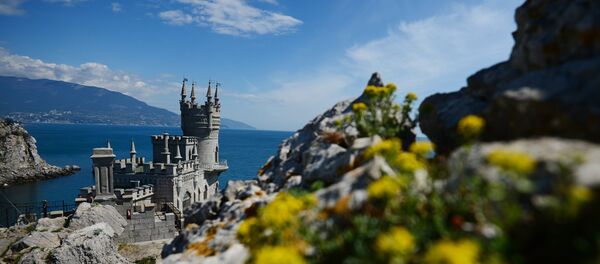MOSCOW (Sputnik), Svetlana Alexandrova — France was forced to adopt a cold stance toward Russia due to US pressure and in order to demonstrate solidarity with other European nations, French lawmaker Jacques Myard told Sputnik Thursday.
"Because of the so-called European solidarity and because of pressure from the Americans, France has joined this anti-Russian stance in the European Union, led by some states who have had a long history with your country [Russia]…that means the Baltic states and Poland as well."
He warned that Western restrictive measures were damaging to French national interests.
"By taking sanctions against Russia we are acting against our interests because it is in our interests diplomatically, geostrategically, economically, commercially, culturally that Russia belong to Europe and be a partner to France and to Europe."
Myard is is one of the ten French parliamentary delegates who arrived in Moscow on Wednesday, from where they will travel to the Black Sea peninsula of Crimea. According to the delegation head, Thierry Mariani, one of the main goals of the visit is to find out the truth about recent developments in Crimea, as Western media has adopted a one-sided approach to covering events there since the peninsula became part of Russia.
Support of West's Anti-Russia Stance Harms France Politically, Economically
France is in a political and economic deadlock because of its anti-Russia stance alongside European countries and the United States, Myard told Sputnik.
"Under the pressure of Americans…. we just in fact act against our interests … and today we are in some kind of deadlock situation, which will be very difficult for France."
France must have a policy independent of other European countries and the United States, he added.
"We have interests with the other Europeans, it’s true. But we should be independent," he emphasized.
Russia has repeatedly and unequivocally called the sanctions counterproductive.
European politicians have repeatedly stated that Western sanctions against Russia and Moscow's countermeasures damage EU food producers economically, especially in Southern European countries that are still suffering the aftereffects of the 2008 global financial downturn.


